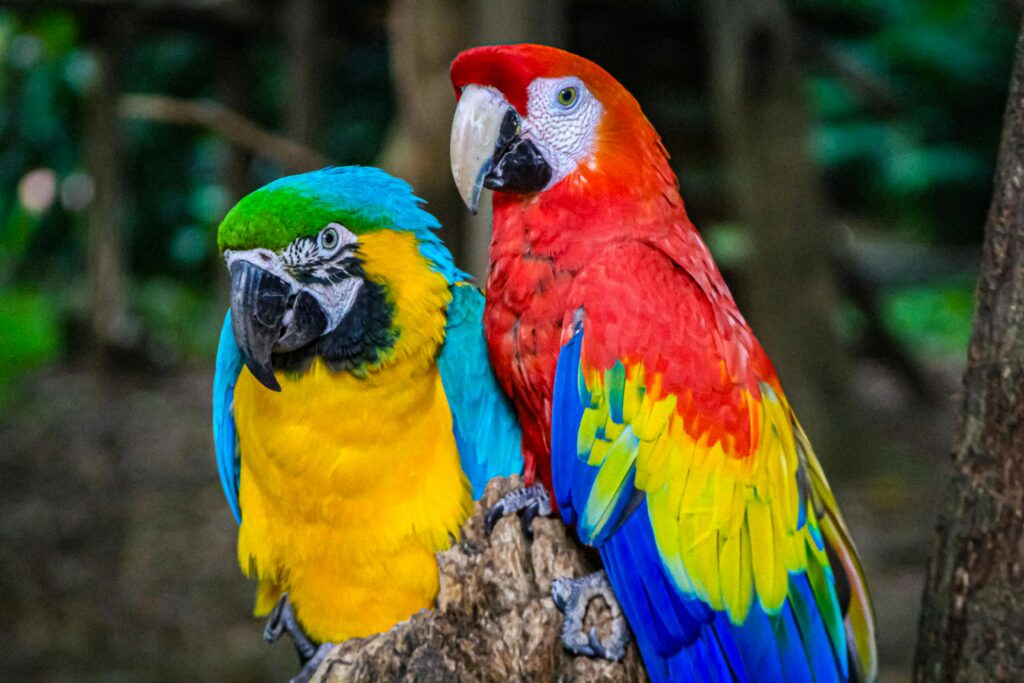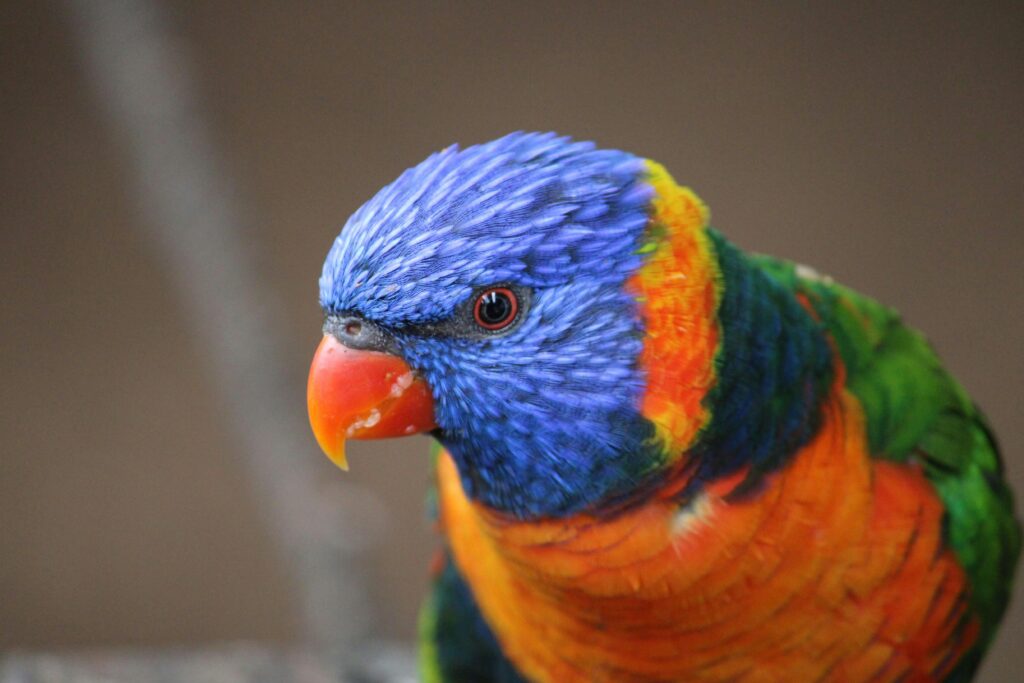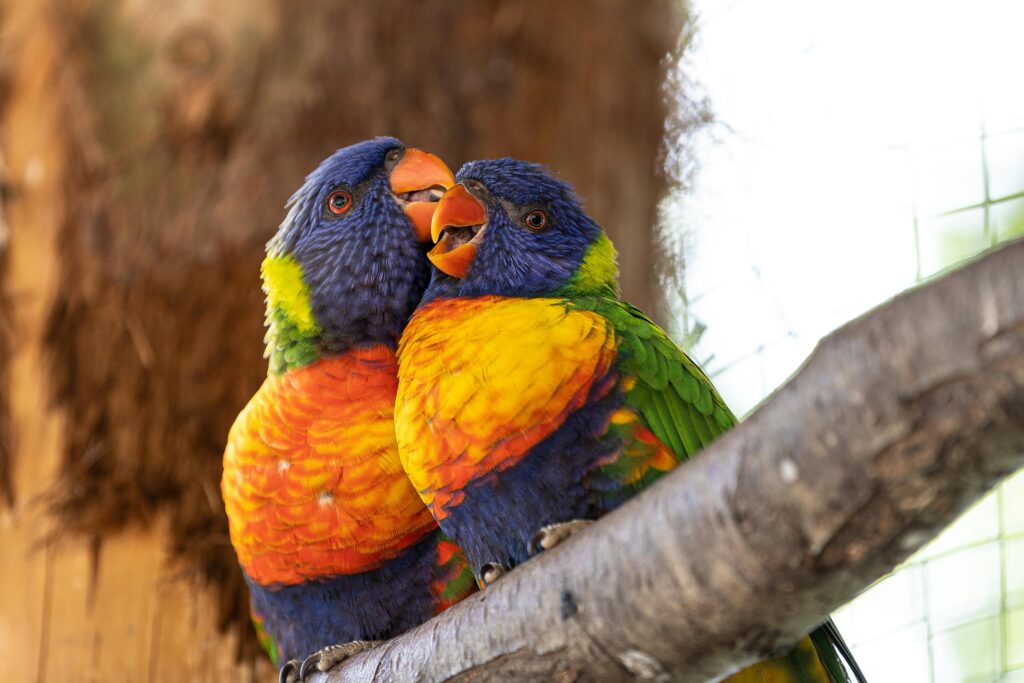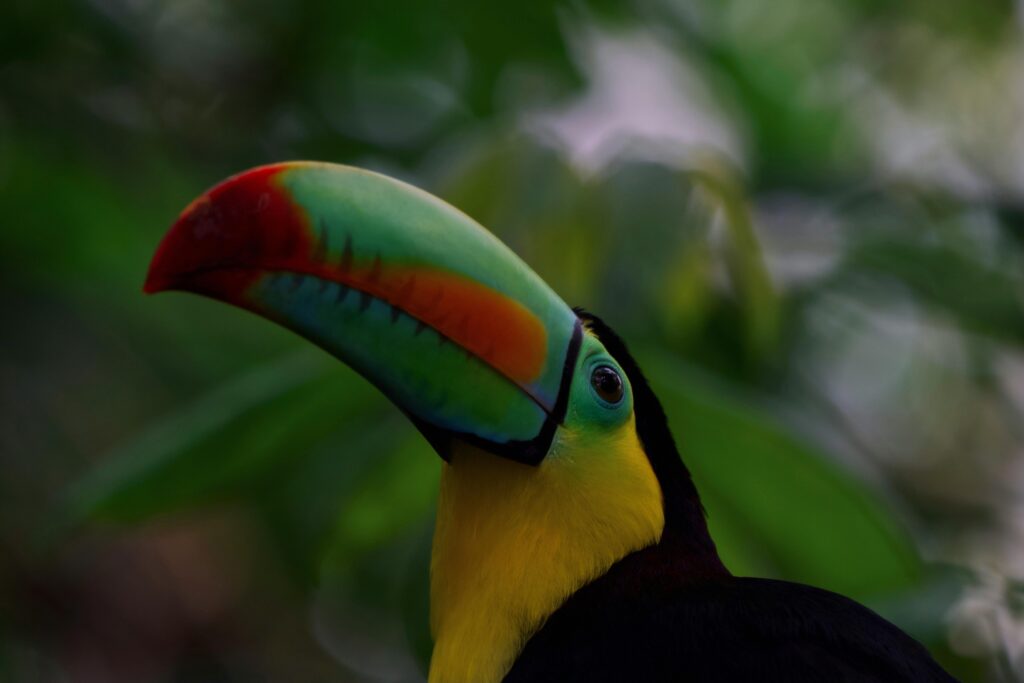You should pick a pet bird that fits your lifestyle, space, and time before you bring it home. Birds come in different sizes, make different amounts of noise, demand various amounts of social interaction, and live for different amounts of time.
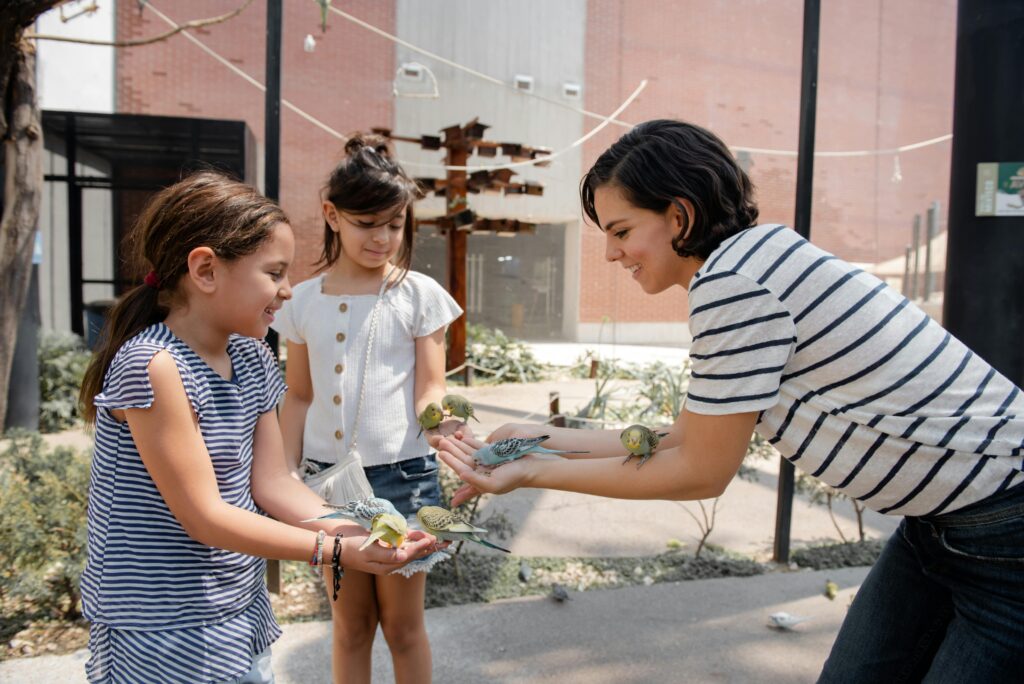
Small Birds for Beginners
If this is your first time owning a bird, start with small, easy-to-care-for birds like budgies, finches, or canaries. These birds are calm, easy to care for, and not as demanding as bigger parrots.
Medium and large birds for people who have owned birds before
African greys, cockatiels, and conures are more intelligent and more social, but they also need more attention and training. They can live for decades and need care every day.
Things to Consider
You should think about how loud it is when you work, how much room you have for a cage, and how ready you are to clean and train the bird. Picking the proper species helps make the link stronger and more comfortable.
Creating a Safe and Comfortable Cage Setup
Your pet will spend most of its time in the cages, so it should be big, clean, and interesting. A decent cage can make your bird happier, healthier, and better overall.
Size and Placement
Pick a cage that is big enough for your bird to move about and stretch its wings. For little birds, having more horizontal room is more crucial than having more vertical space. Put the cage in a safe, well-lit place where the bird can see people but not hear too much noise or see too much traffic.
Cage Materials and Safety
The bars on the cage should be spaced out correctly and made of materials that won’t hurt the animals. Don’t buy cages that have paint on them unless the paint is safe for birds. Always lock the doors to keep anyone from getting out.
Accessories and Furnishings
To keep your feet healthy, add perches made of varied sizes, materials, and textures. Add food and drink bowls, a cuttlebone for calcium, and safe toys to keep them from getting bored. Change out the toys every so often to keep things fun.
Feeding Your Pet Bird a Balanced Diet
To keep your bird healthy, you need to feed it the right foods. A bad diet can make you sick, make your feathers fall out, and even kill you early.
Seed Mix Is Not Enough
A lot of people think that birds exclusively eat seeds. However, seeds don’t give birds all the nutrition they require. Eating solely seeds can make you fat and make you lack vitamins.
Pellets and fresh foods
Bird pellets of high quality are made to suit your bird’s nutritional demands. Add fresh veggies like carrots, spinach, and broccoli to the pellets, and give them modest amounts of fruit like apples or berries.
Water and Treats
There should always be fresh, clean water available. Do it every day. Give them goodies like millet or dried fruits every so often, but don’t give them too much.
Keeping the Cage Clean and Hygienic
To keep your bird happy and healthy, you need to keep things clean. A dirty cage can make bacteria grow and smell awful.
Daily Cleaning Tasks
Every day, take out the food that hasn’t been consumed, change the water, and clean the bowls for food and drink. If you detect droppings or spilled food, wipe off the surfaces.
Weekly Deep Cleaning
Remove the tray at the bottom once a week and wash it with warm water. Clean the cage bars, toys, and perches. Stay away from powerful chemicals. Use cleansers that are safe for birds or a weak vinegar solution.
Proper Waste Disposal
Put newspaper or cage liners on the bottom of the cage to catch droppings. Make sure to change them often. Always wash your hands after you clean.
Social Interaction and Mental Stimulation
Birds are intelligent and like to be around other birds. They can get bored, depressed, or angry if they don’t get enough mental and physical activity.
Talk and Play with Your Bird
Talk to your bird every day for a while. You can let the bird listen to you sing, whistle, or talk. A lot of birds like to sit on your shoulder or finger while you relax.
Offer Toys and Challenges
Give them puzzles, mirrors, bells, and items they can chew on. These things keep your bird’s mind sharp and busy. Use toys that make them work to find food.
Out of Cage Time
Every day, let your bird out of its cage in a safe room. They get exercise and delight from flying or climbing with supervision.
Training Your Pet Bird with Love
Training your bird will let you get closer to it. It also teaches good manners and makes it simpler to deal with.
Start with Basic Commands
Teach them simple things, such as how to walk on your finger or go back to their cage. Use soft verbal orders and hand motions.
Use Positive Reinforcement
When your bird does what you say, please give it a treat or praise. Don’t ever yell at or discipline your bird. Being patient and gentle is the most excellent way to go.
Be Consistent
Do a little practice every day. Make sessions brief and entertaining. Your bird will learn to trust you more and more as time goes on.
Health and Grooming for Pet Birds
Birds are good at hiding when they are sick, so it’s crucial to keep an eye out for symptoms of illness and keep up with basic maintenance.
Watch for Health Problems
Check for changes in the bird’s droppings, behavior, food habits, or feather condition. Contact an avian vet if your bird looks fatigued, fluffed up, or stops singing.
Beak, Nail, and Feather Care
Your bird should naturally wear down its nails and beak. If they get too long, take them to the vet to get them trimmed. It’s normal for birds to molt, but if they have bald spots or are constantly plucking, it could be a sign of stress or disease.
Bathing and Clean Feathers
To keep your bird’s feathers clean, give it a small dish of water or spray it with water. A bath a few times a week is fun for most birds. Clean feathers help them fly and keep calm.
Creating a Safe Home Environment
The area outside the cage is just as essential. Birds are curious and catch trouble quickly, so you need to make your home safe for them.
Remove Hazards
Close the windows, turn off the ceiling fans, and keep cables, candles, and other things out of reach. Don’t use sprays or cleaners that smell strong when your bird is out.
Avoid Toxic Foods and Plants
Birds shouldn’t eat chocolate, avocados, caffeine, or alcohol. Many houseplants, such as pothos and lilies, are also. Before introducing something new into the house, always do your research.
Secure Windows and Mirrors
Birds can fly into clear windows or mirrors. When your bird is flying free, close the curtains or hide any shiny objects.
Understanding Bird Behavior and Emotions
Birds talk to one another with their bodies, voices, and movements. You can become closer to them by learning to read their signs.
Common Bird Behaviors
Your bird is pleased if it chirps, sings, or wags its tail. Depending on the situation, fluffing up feathers either implies comfort or disease. Biting or screaming could suggest that someone is scared or stressed.
Emotional Needs
Birds can get lonely or anxious while they are away from their owners. If you are gone throughout the day, make sure your bird has company and something to do.
Building Trust Over Time
Get your bird used to you being around. Don’t flick or talk too loudly. Your bird will get more comfortable and sociable over time.
Veterinary Care and Long Term Planning
Like other pets, birds need to see a vet. Planning for their long-term requirements is essential because they could live for a long time.
Regular Checkups
At least once a year, take your bird to an avian vet to get checked out. This can help find problems early on before they get worse.
Emergency Signs
Get aid right now if your bird stops eating, sleeps too much, or has trouble breathing. Birds generally don’t show signs of disease until it becomes worse.
Conclusion
Caring for pet birds at home is a fun way to add enjoyment, company, and color to your life. These kinds of animals require more than just food and water. To keep healthy and happy, they need love, attention, protection, and regular care.
You can have a deep link with your bird that lasts for years if you set things up correctly, have a regular pattern, and know what your bird requires. This guide will help your bird thrive, whether you are a novice bird owner or want to enhance how you care for them.
